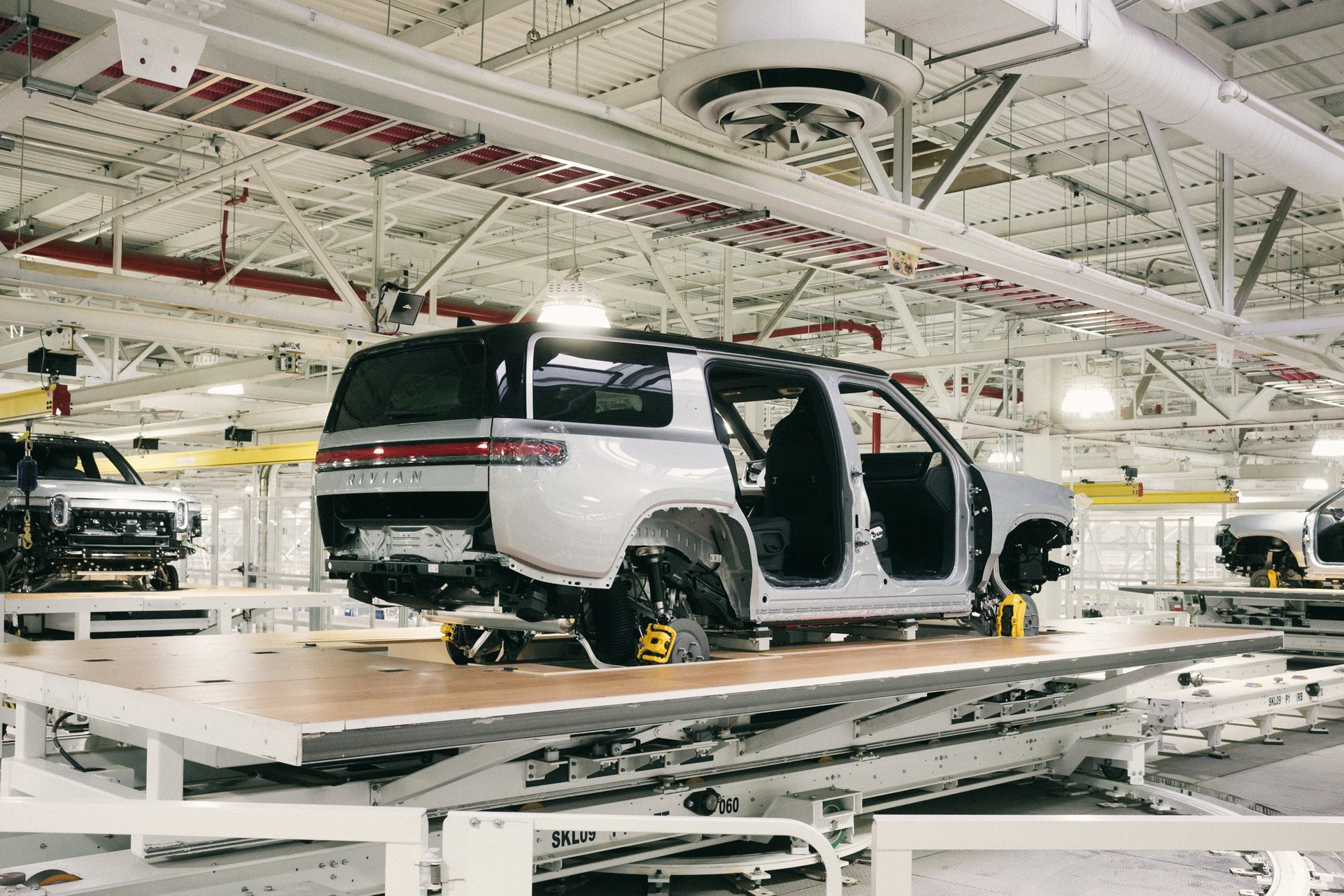Rivian Automotive has decided to shake up its executive ranks. As part of the shuffle, the automaker’s head of manufacturing, Charly Mwangi, will depart.
The automaker’s CEO, R.J. Scaringe, announced the departure and the management shakeup in an internal email that was seen by Bloomberg.
“Charly Mwangi has made the decision that it’s time for him to move on from Rivian,” Rivian told Carscoops in a statement. “Charly joined at a key moment in Spring 2020, and he’s been an important part of bringing our manufacturing capabilities online. We wish him and his family all the best as he joins the Rivian alumni community.”
Read Also: Rivian In Contract Dispute With Seat Supplier, Prompting Drop In Share Price
Mwangi had previously worked at Tesla as an engineering executive. The company, though, has struggled recently with supply shortages that have slowed production. That has led to reports of frustration among Rivian order holders who are waiting for their vehicles to be delivered.
The company went public last year and became 2021’s biggest IPO but its shares have fallen more than 70 percent this year as a result of the production troubles and an embarrassing pricing foul-up that could ultimately be traced back to its supply lines.
Frank Klein, who joins the company from Magna where he was an executive, will start in his role as chief operations officer on June 1. Rivian’s senior manufacturing, engineering, and supply chain personnel will report to him as a result of this move. The electric startup said in a statement:
In addition to Charly’s departure, yesterday we announced several organizational changes to align Rivian for continued growth. This includes the restructuring and alignment of our operations team, led by our new Chief Operations Officer, Frank Klein, who will be joining Rivian on June 1. Mr. Klein will oversee production, manufacturing engineering and supply chain.
As we ramp production towards our 2022 target of 25,000 vehicles, we are confident these changes will strengthen our ability to more efficiently engage new and existing customers, extend our product offerings, and deepen our relationships with commercial partners. We are committed to maximizing the shift to electrified transportation while driving value for our customers and investors.
On top of all that, the internal email stated that Rivian would split its commercial and retail operations. The move would see the side of the company engaged in creating delivery vans for Amazon separating from the side of the business that makes the R1T pickup and the R1S SUV.
“This is an important time for our growing business, all of which is happening in an extremely challenging environment,” Scaringe wrote in the internal email. “We are well-positioned for long-term success, but we must continuously evaluate how we operate.”




